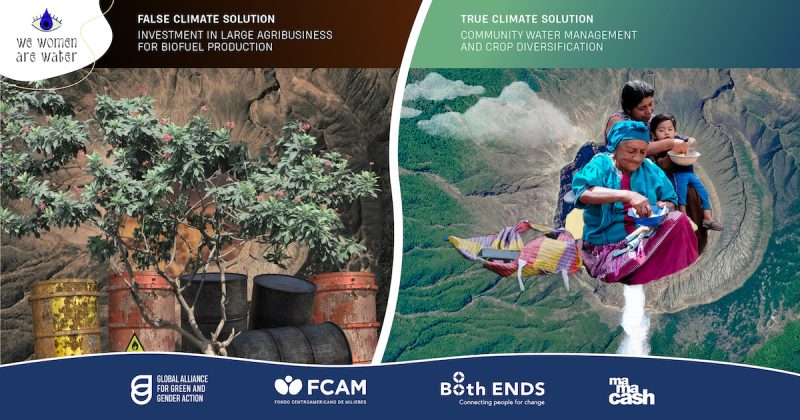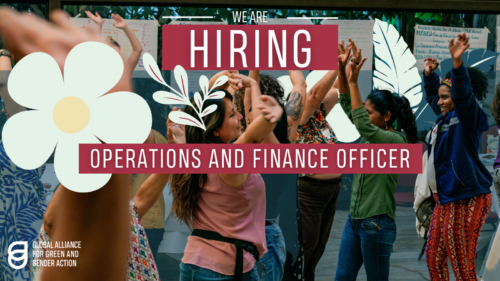Recovering territorial rights to conserve water sources – Guatemala

For generations my people, the Mayan Ch’orti’ people have been living on our territory in Guatemala. But some years ago, the biofuel craze landed in our country. Companies started to monopolise water resources and displaced our local communities from our lands and territories with the aim to expand jatropha monocultures, a crop used for ethanol fuel, a biodiesel highly demanded by the European markets.
Biodiesel is not the easy climate solution portrayed by politicians and corporations. Nobel prize winning chemist Paul Crutzen proved that growing and burning large amounts of biofuel in fact raises greenhouse gas emissions. 20´000 litres of water are used for every litre of biodiesel. It severely threatens our food supplies and the livelihood of us farmers.
Since municipalities are refusing to register lands under indigenous communities’ names, we the Ch’orti’ women took action. We put our ancestral knowledge on conserving and protecting water into practice, and pursue legal actions to grant us proper land rights and guarantee our access to water sources.
We advocate for implementation of a policy to reforest communal areas, and we take actions before courts of justice to legitimise our rights and hold those responsible for the environmental damage accountable. We built reservoirs to store water which has allowed us to diversify our crops and plant native species which are less vulnerable to the droughts caused by climate change.
Biodiesel claims to be a climate responsible alternative to fossil fuels, but its production only deepens the ecological crisis in our territories. We call on governments and investors to shift resourses away from biodiesel fuel production. It is contributing to the climate crisis and violating indigenous rights. We ask for funds to be redirected to the true gender-just climate solutions being implemented by us, women and girls from the Mayan Ch’orti´ people.
The network of Indigenous Mayan Ch’orti’ women and COMUNDICH are supported by Fondo Tierra Viva, which is part of the GAGGA network. You can follow the work of COMUNDICH here

We Are Hiring: Operations and Finance Officer!
DEADLINE EXTENDED! Are you passionate about ensuring efficient financial management and operational excellence to support transformative work in climate, environmental,…

We Are Hiring: Donor Engagement Officer!
DEADLINE EXTENDED! Are you passionate about cultivating relationships and securing funding to support transformative work in climate, environmental, and gender…

Welcoming Anamika Dutt As GAGGA’s Planning, Monitoring, Evaluation & Learning (PMEL) Officer!
Anamika Dutt is a feminist MEL practitioner from India. Anamika believes that stories of change and impact are best heard…
Subscribe to our newsletter
Sign up and keep up to date with our network's collective fight for a gender and environmentally just world.
